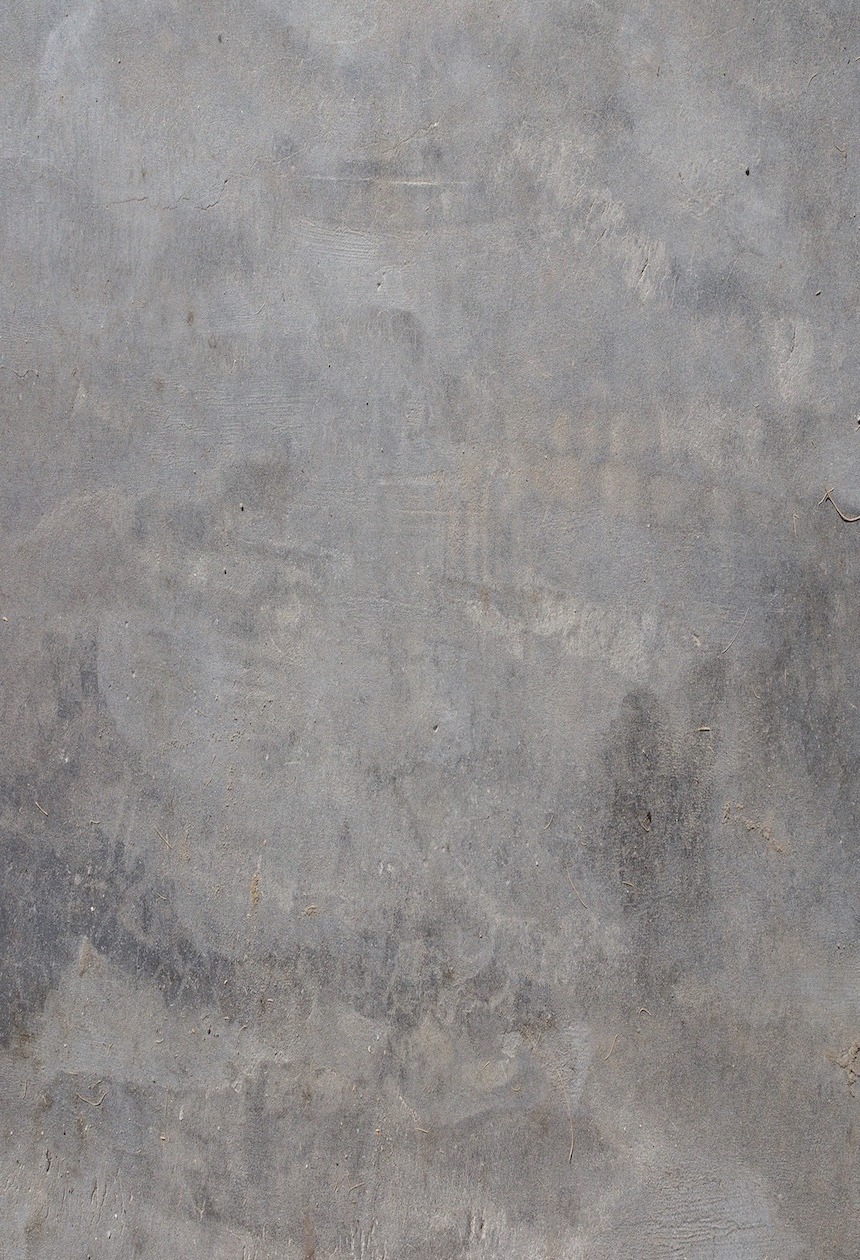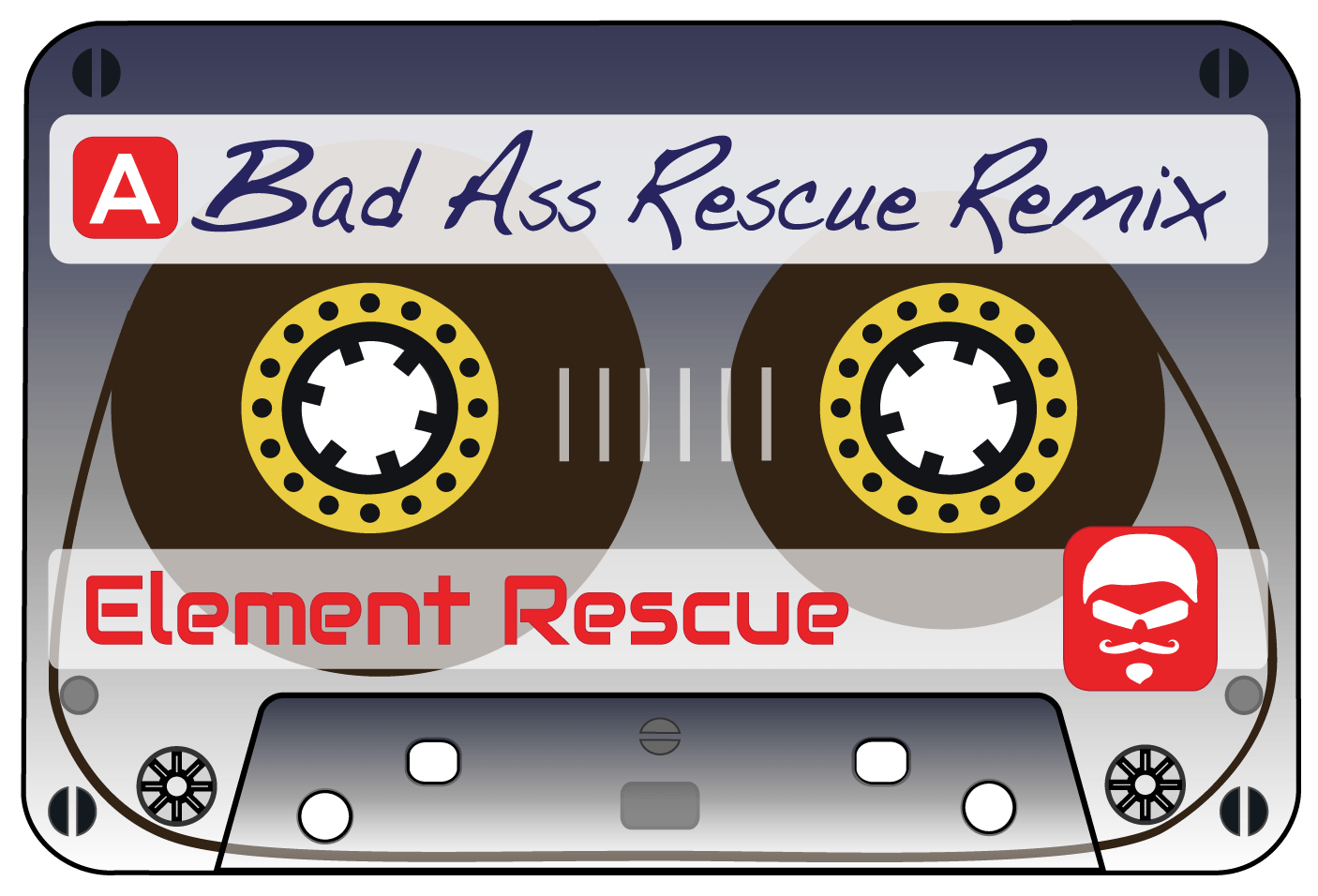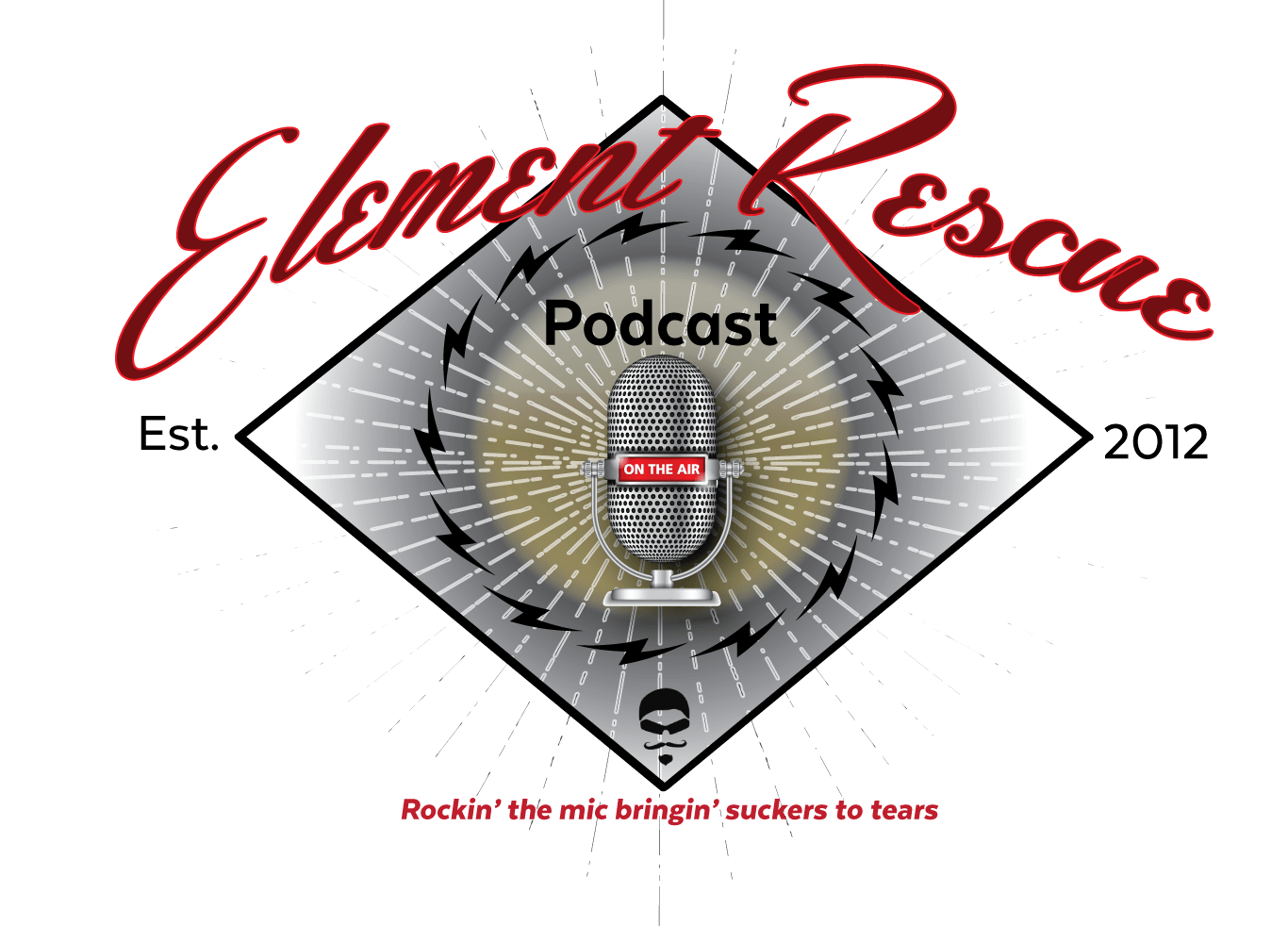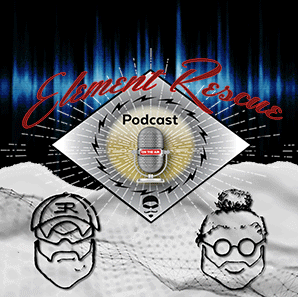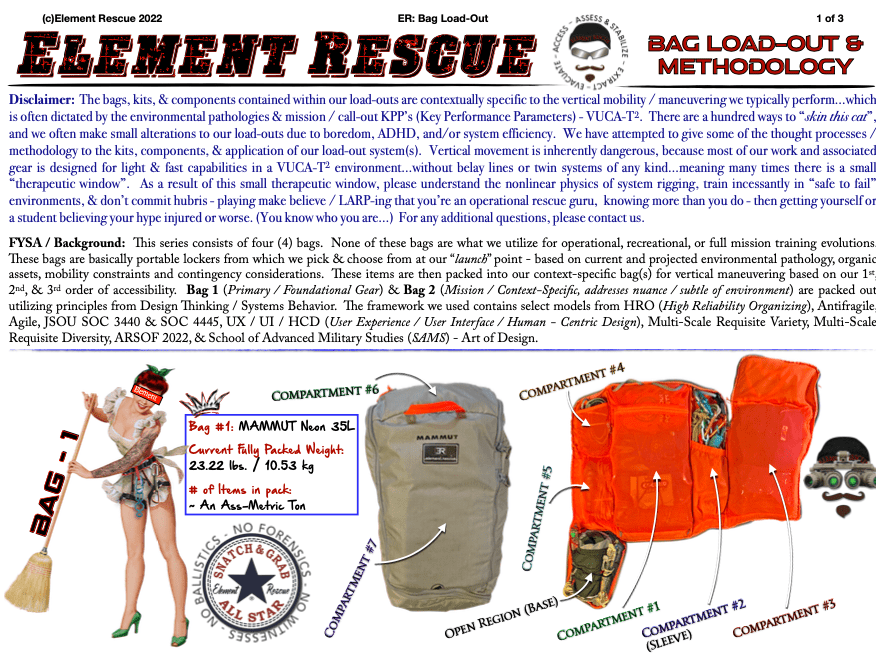
Bag Load-Out Methodology- I
So here is Bag#1 As the PDF states, these bags are basically portable lockers for responses (“Build-A-Kit”), training gigs, FMP’s, or recreational vertical movement across the spectrum (urban, canyoneering, mountaineering, etc). When we get to location, we assess the operational needs, requirements, constraints , & environmental pathology - then pick and grab from the bags. Each bag in these videos contains its own framework / character for inclusion / exclusion of contents (and we tend to alter / evolve contents pretty regularly).
We then load / pack-out our operational pack (we usually have a few different options of empty operational packs to chose from when we get at location - depending on context & projected needs - IE, weather, manpower, organic assets, severity of rough terrain evac, ambient light, potential duration of operation (Access, Assess & Stabilize, Extract, Evac). The operational bags are loaded in 1st, 2nd, & 3rd order of accessibility / availability.
Read More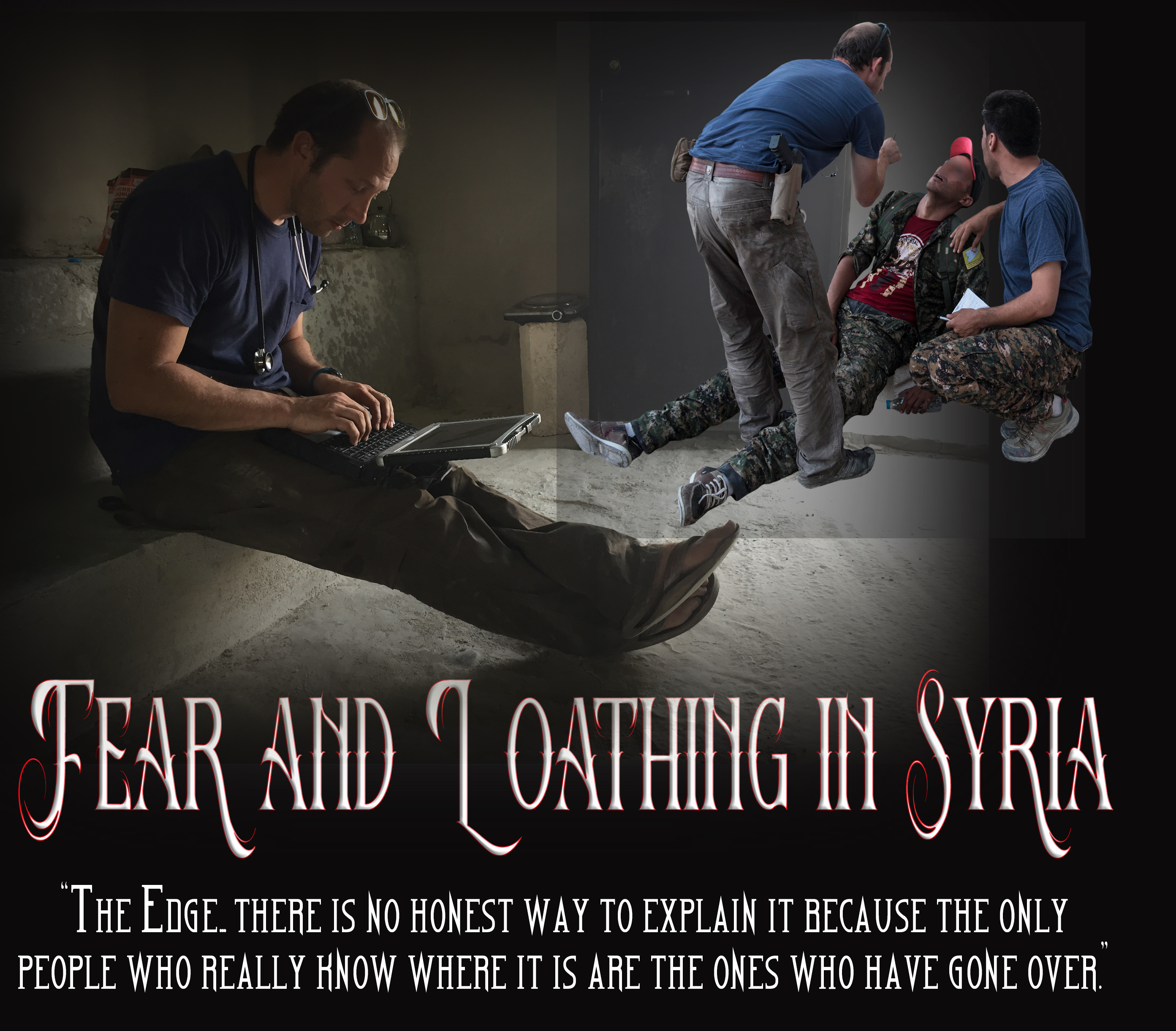
During this webinar, A key member of our syndicate & podcast hosts, Jon Johnson (JJ, or, JJ the Land Pirate) delivered his full presentation of “The Fallout of CBRN Exposure: A Cosmology Episode” which was cut short during SOMA. Dr. Mike Shertz of Crisis Medicine & Sean McKay provided commentary, and sometimes, a little playful banter. Many Lessons learned, which go way beyond just the topic of CBRN…to include Risk vs. Uncertainty Mitigation, Deliberate Heuristics, Avoiding Blindspots, Resilience, and Mindfully seeking the Novel & switching your brain to what is salient.
Read More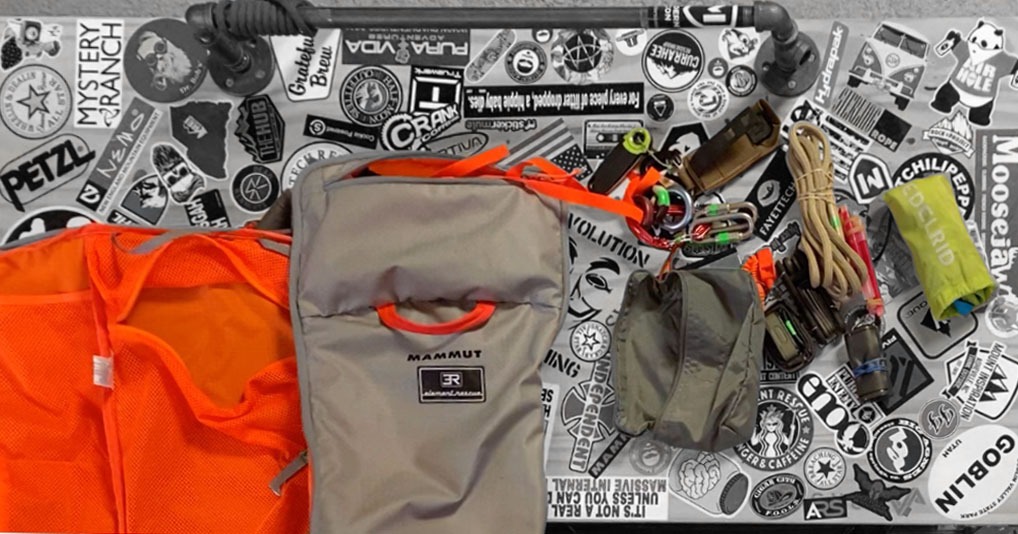
I keep my “Build-A-Response” kit(s) & components divided into two bags - which are usually thrown in my truck. These carry my 90% solution to a response or training - THESE ARE NOT MY “CARRY ON ME” RESPONSE or Mountain / Canyon Mobility / Training BAGS. These are what I build my “carry on me” bag from. I pull my gear / components from these bags based on what I’m doing, where I’m doing it, and the context of the situation (fast & light movement, rescue - potential complexity / manpower / organic team assets / environmental pathology, etc). So there is urban, canyon (dry & wet), mountain…with some swift-water gear sprinkled in....Although most of the gear we use is adaptable and can permeate into full-spectrum vertical utilization. As far as the bag we carry the components we pull from these bags, we utilize an ass-metric ton of various bags of various sizes and capabilities…more to follow on that one…
We jump into some West Coast RTF topics with FF/Medic/Tactical Medic Bryan Howell - discussing the complexity of this response asset and dive into TTP / SOP development, training, and some the ridiculousness that surrounds this topic nationwide…AND we also dig into the REMS (Rapid Extraction Module Support) programs out on the West Coast (RIP Notorious B.I.G.). REMS is basically a bad-ass, complex, and evolving program in which 4-man teams become a QRF for injured line wildland firefighters. The team is required to make access through austere vertical terrain, assess & stabilize the casualty, package and extract, and finally evacuate or handoff for transport to a MTF… anyway,, we discuss the good, the bad, and the ugly.

The Element Rescue Crew (Ryan, JJ, and Sean) with special guest Dennis Jarema, US Army Special Forces 18-D, Schoolhouse Instructor, and PFC Podcast Supreme Ruler…
In this episode the guys breakdown PFC principles, discuss the framework, and permeate these into civilian application.

Part 2 of our conversation with Ricky (finally...sorry)... We hit on more aspects concerning the Ground force - Aeromedical interaction, Evidence-Based Medicine (EBM) and Environmental -Based Medicine...and Experienced-Based Medicine, and more.
Read More
We're back, Hacking Science with Ricky Ditzel, Esq. III- Lead R&D guy with SOM-C, the editor for the Journal of High Threat and Austere Medicine, and, flight medic in the Army. Self described huge fan of The Eagles (not the Bald kind or the legendary band kind...just the Philadelphia kind.)
In Part one of this two part discussion, Sean apologizes to Ricky and they discuss the first time they hugged at SOMSA. Ricky spits out disruptive smart guy stuff like a lyrical genius…things like; calcium chloride, calcium gluconate, calcium neutral safe places, and something called DIC…which turned out to be totally different than what Ryan and Sean were thinking. Clotting cascade physiology, fibrinogen and fibrin, some info about his working group- which has smart guys with very odd initials and credentials after their names…Also...some protocol creations, a few specific dumb ass comments that others have made in opposition to Ricky's calcium crusade, a little flight medic insight with triage and hand-offs, but, most importantly…we discuss 3 other things, that when combined, will make you appear 33% better looking to 42% of the members of the opposite sex…FACT(ish). The mathematical wizardry used to calculate those percentages was performed using RCT and Meta-analysis with a p value of 0.05…so #EBM and #epistemology (how James Ferrier the Scottish philosopher would be puking in his mouth now…) Oh, and the squats that Ryan will be doing to prepare for his own crusade of bringing back the 1970’s era Ocean Pacific corduroy short shorts…
Click the logo below to visit SOM-C and check out what they have going on.
Read More"Tracking Heffalumps and Woozles"
A continuation of the training talk with Sean, Ryan, JJ, and David.....they discuss the skills you need to pay the bills (aka mastering the basics), Slim Shady as he relates to the Commando Medic, The importance of training like a Tigger, not like an Eeyore....getting lost in Sean's luscious beard and much, much, more. Valiant effort made to stay on topic gentleman, keep up the good work.
"Don't Shock Me Bro"
We continue our “operational hacking” series here as we talk shop again with JJ. This time, Sean, Ryan, JJ, and David sit down and mostly discuss training. Yes, they also manage to talk about; donut shops, Compton hats and losing Sean, dog legs, a GPS named Judy, pink bunny and ocelot suits, Pollo Loco, Galileo, the Coriolis effect, Han Solo, training fairies, who may be buried under the Palo Alto Mac store....and oddly enough, staying on task. You'll definitely laugh, you may cry, you'll probably learn a few things, and you could want to shower? Then sit back and relax, part II is on the way.
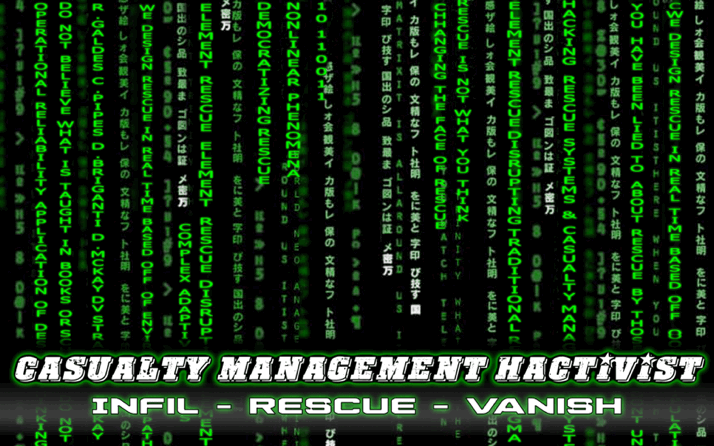
Task Force- Land Pirate Code....Continuing with the “operational hacking” series...we brought in one of our resident pipe hitters for the CCP podcast. Sean and Ryan speak with Jon Johnson (JJ) about CCP’s. JJ IS AN 18D now teaching at the school house at Ft. Bragg and just joined forces with the SOM-C posse. They discuss the principles to help you figure out the practices that fit your response capability and organic assets. Also, there is a pdf presentation attached to the podcast page on element rescue for her fidelity and your enjoyment.
Read More
Task Force Nutcracker... This is the first installment of a multi-part PodCast Series on Operational Hacking. Not so much Computer hacking like Legion, but using the hacking mindset to hack your TTP’s, design planning, protocols, ...and really everything you do...
Read MoreSean and Brent hang out discussing mountain rescue, decreasing time to patient times, meat anchors, thoughts on ways to decrease your evacuation times...DJ AM, anchor evaluation, and other topics you can not live without knowing...
Read MorePart 2 - Ryan & Sean talk how to integrate med and rescue training into your teams everyday training, decreasing complexity, building your speed up for rescue and bail-outs, the negative side of stimulus-response training, gaining SA for self and buddy rescues, redefining what rescue is- for your context, Ocelots (Leopardus pardalis): what they are, why you need one, and how to use them to fight terrorism, Micromastery, Micro assault rescue kits, NWA and Easy-E...
Read More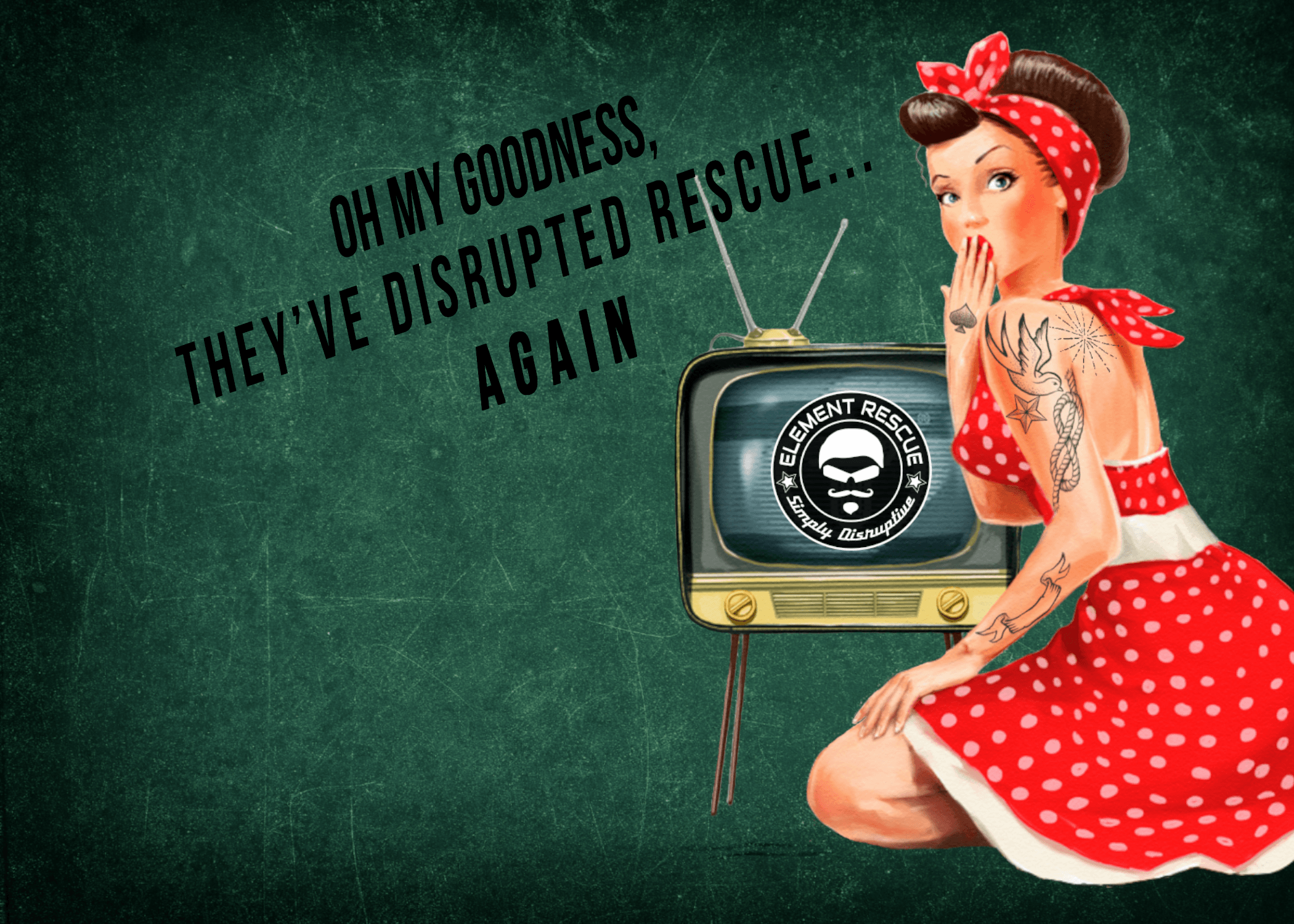
Sean and Ryan start a multi part series on all things...casualty management, caffeine, California Pollo Loco, Bail-outs, Cuban Coffee, Gangster Rap, and...whatnot...
Read More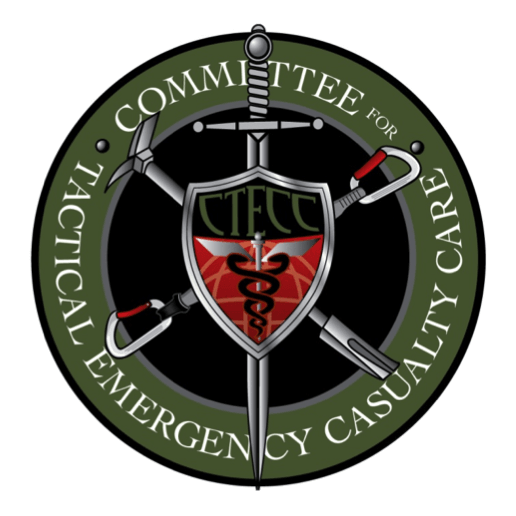
Here is the post SOMA / C-TECC Meeting podcast. Sean and Brendan review some of the presentations, discussions, and future endeavors. The guys also discuss some RTF concepts, the CFED conference, Sean has an apology, and they discuss who can drop more “F” bombs - Dr. Smith or Scott Kimball...fun for all.
Read More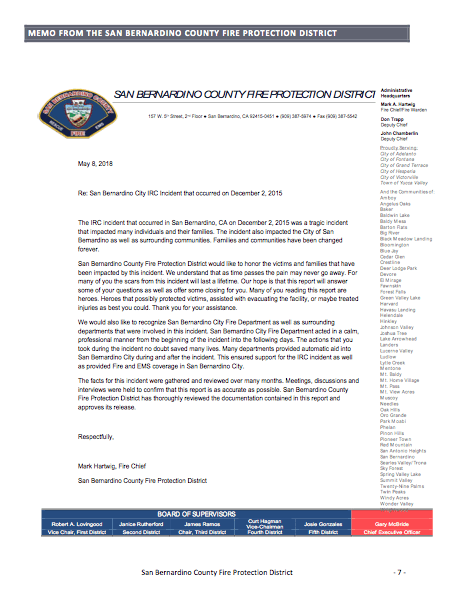
We were privileged to be hired as part of a team to provide the San Bernardino County Fire Protection District with a comprehensive analysis and review of the response by the San Barnardino City Fire Department to the active shooter incident of December 2, 2015. Our thanks goes out to everyone involved for their time and expertise and the willingness of the responders who shared their stories from that day, in an effort to enhance the response capabilities of others.
Read More
Unedited pre-conference chit chat with Sean McKay and Brendan Hartford....you have to listen to find out what is inside.
Read More
Our discussion with Lee about all things Modern Icon...How it began, its rise to bad assness, its innovative designs, and lots, lots more.
Click the logo below to visit Modern Icon’s website and check out their rad gear
Our chat with Andy continued... A bunch of things are discussed, including Andy being a "Trekkie" and a "Star Warsian"... Unit conversions... Andy's cats... and his dead squirrel, Gunter (RIP), and a bunch of collapse info. We reached a friction point where Andy questioned, "is this date over?"...but we reconciled and finished the podcast. Below is the structural collapse physiology graphic Andy and I discuss...
Read More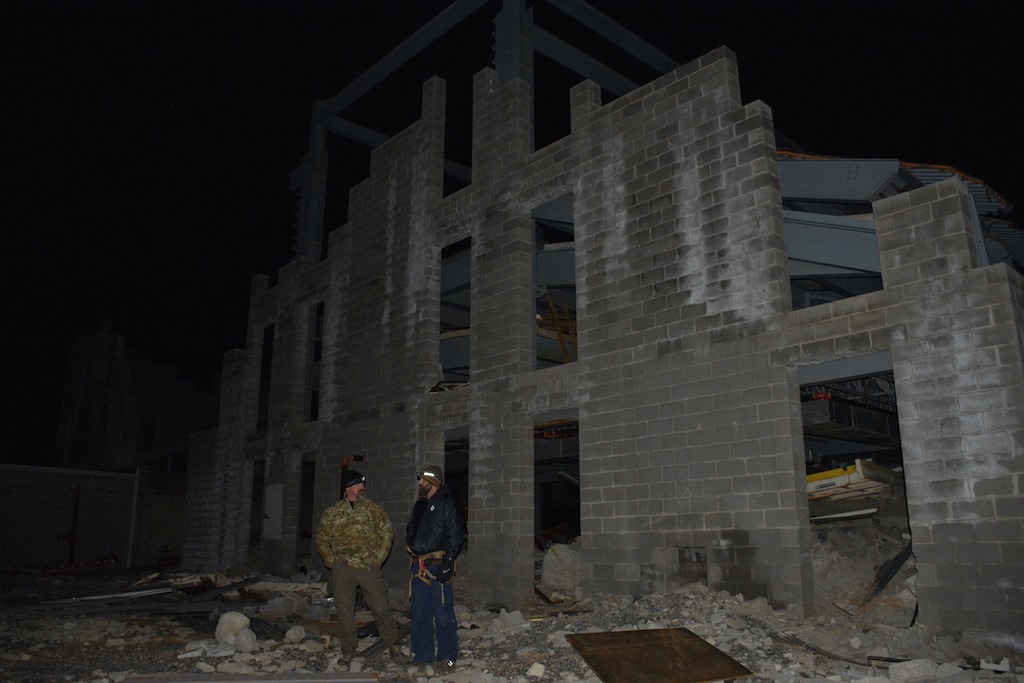
This is the first part of our talk with Andy from Recon Response, on all things structural collapse. Andy is a shy, but caring structural engineer (who will tell you about his education in this podcast), who assists USAR teams in the areas of education and rapid structural triage. We've known Andy for awhile, and his vast knowledge of the science / nonlinear physics of structural collapse has greatly enhanced our programs of instruction when organic assets are at a minimum.
Read More![]()
This second podcast is a continuation of our discussion with Brendan Hartford and Mark Anderson prior to the C-TECC committee meeting at this years SOMA conference.
Read More
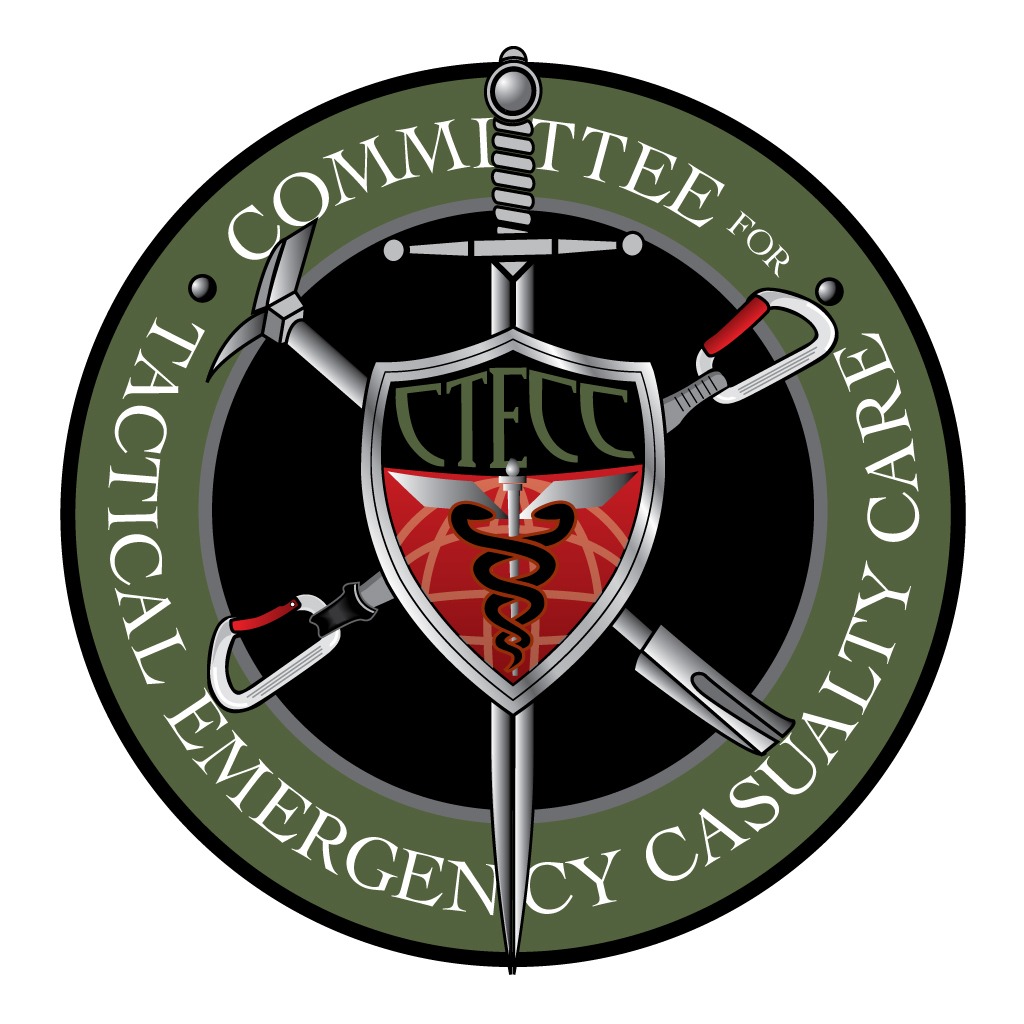
Here Ye, Here Ye, Updates to the TECC Guidelines have arrived....Download your copies here...
In an effort to keep you in the know, here are some TECC updates for you to have and to hold, from this day forward, in sickness and health....or, until they're updated again.
Taking a look at IFAKs and putting a rescue spin on things; There may be an overuse of vacuum sealing implied, but, can you ever really ever over use a vacuum sealer?
Read More![]()
Pimp My Kit - Episode One: A look at a new hoistable evacuation platform, some coffee & mustache wax
Many of us for the past...well... I guess decades have found ourselves carrying a hoist litter for urban, mountain, and helicopter operations, that somewhat resembles a golf bag. No one ever really wants to be the person responsible for carrying this thing whether fast roping, hiking, crawling, or whatever your insertion method of choice may be. We started messing with the Phantom Hoist a few years ago, and did a few blogs on it (on our old website), the only thing we really couldn't do with the Phantom Hoist compared to the traditional product was dragging. So...we introduced the Phantom Hoist to the Foxtrot litter over dinner and drinks to see what the result would be the next morning...add a quad fold, a 6 mil bag and vacuum sealer, and you have 50 Shades of Rescue...and a bad ass ,much smaller and manageable low profile kit capability.
Read More

Disruptive Rescue: Episode V
This episode is the third in our three part series with Dominick Briganti.
Read More

Climbing Ninja is featured here "HyperPacking" an Assault Medic Bag (AMED) from Tactical Medical Solutions. We are big fans of this bag, it's great for more than just assault medic-ing. We also happen to really like the ER-S he has included in his rope rescue essentials packing list.
Read More
This episode is the second in our three part series with Dominick Briganti. Our focus this episode are the differences and similarities of mindsets in various rescue cultures, perceived safety factors, NFPA AHJ, and more thoughts behind disruptive rescue.
Read More
This first podcast is a quick introduction to our series on Disruptive Rescue. The podcasts will focus on conversations with people in and around the rescue community.
Read More
Tactical Combat Casualty Care & Evidence Based Medicine: The Good, The Bad, The Irrelevant (Part II)
This is a two part podcast with Dr. Daved VanStralen discussing the topic of evidence based medicine and TCCC. We have taught and "preached" TCCC for over a decade, while defending the guidelines, equipment, and recommendations with the "mantra" evidence-based medicine. After years of unexplained failures and issues, we take a look at what "EBM" actually is, and whether its performance parameters are relevant to your operational parameters.
Please check out the podcast page at elementrescue.com for additional information, research, and links.

Tactical Combat Casualty Care & Evidence Based Medicine: The Good, The Bad, The Irrelevant (Part I)
This is a two part podcast with Dr. Daved VanStralen discussing the topic of evidence based medicine and TCCC. We have taught and "preached" TCCC for over a decade, while defending the guidelines, equipment, and recommendations with the "mantra" evidence-based medicine. After years of unexplained failures and issues, we take a look at what "EBM" actually is, and whether its performance parameters are relevant to your operational parameters.
Read More
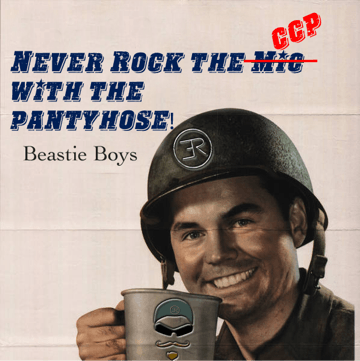
Outlier Considerations to Improve Morbidity & Mortality During Active Shooter Events- Part 2B
In this episode we briefly discuss why we take an HRO approach to the dynamic violent incident, versus an evidence-based medicine / methodology. We will be going into greater depth on this subject in the near future... I am sure you will be just as surprised, (and disappointed) as we were. We also discuss some breaching considerations and options, we touch on a little halligan anatomy, and some of the physics behind various breaching techniques, which is the foundation for improvisation.
Read More

Outlier Considerations to Improve Morbidity & Mortality During Active Shooter Events- Part 2A
Part 2 of this series is broken into “Part 2a” & “Part 2b”, each around 30-40 minutes long. In this episode we briefly discuss why we take an HRO approach to the dynamic violent incident, versus an evidence-based medicine / methodology.
Read More
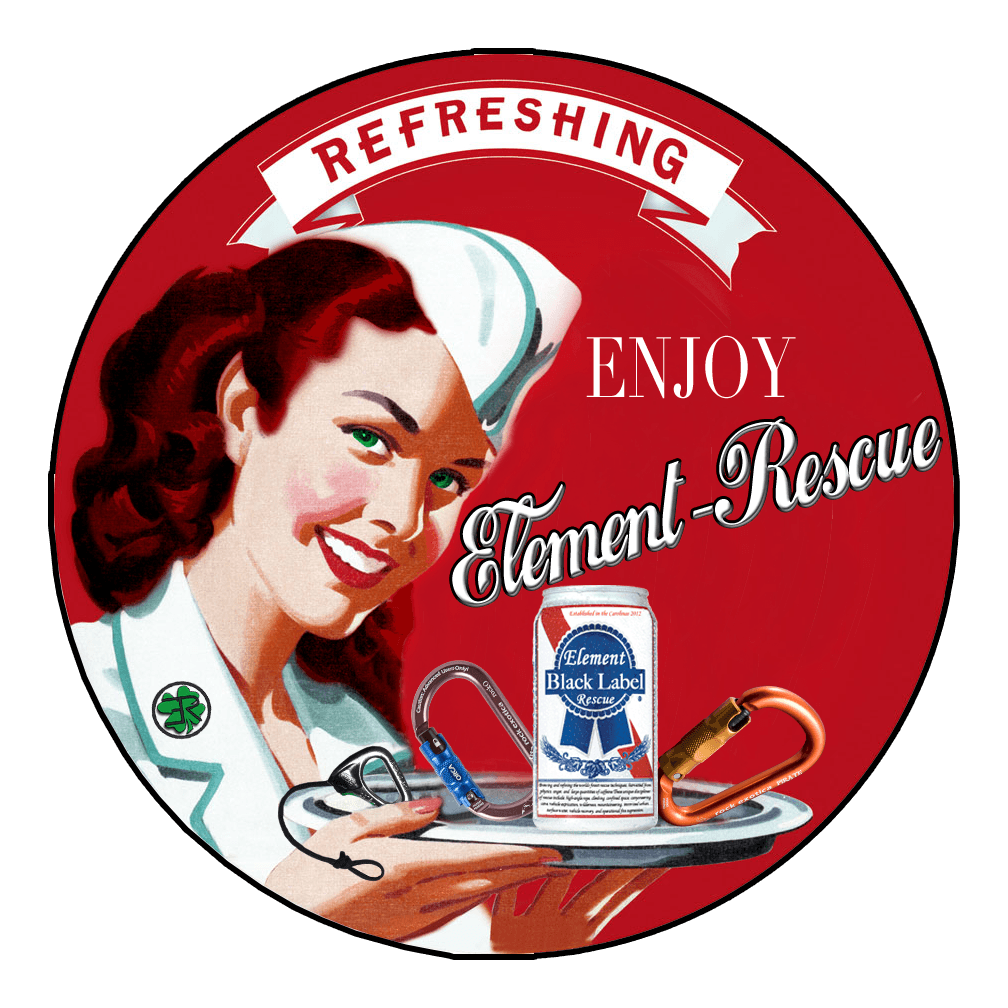
This is the final episode on HRO’s with Dr. van Stralen. Probably a good time to throw out a big “Thanks” to Daved van Stralen for his time, while he was on vacation in France to talk with us. We are fortunate to be able to work with him quite a bit, and will definitely be doing some more podcasts with him in the future. Besides HRO, he is a Yoda when it comes to airway management...
We will also be doing a video cast in the next week or two on what that initial walkthrough looks like when implementing HRO into your training, planning, and response SOP’s.
Read More

HRO methodology has been permeating into a broad spectrum of high risk / high threat organizations over the past decade. From nuclear power-plants, intensive care units, wild land firefighting and most recently DoD health care systems. There is plenty of information out on the web pertaining to HRO’s, but is it valid or just another company claiming to be “experts” in hopes of getting a high paying contract from your organization? We will speak with one of the originators and internationally respected practitioners of HRO, Dr. Daved van Stralen.
Read More
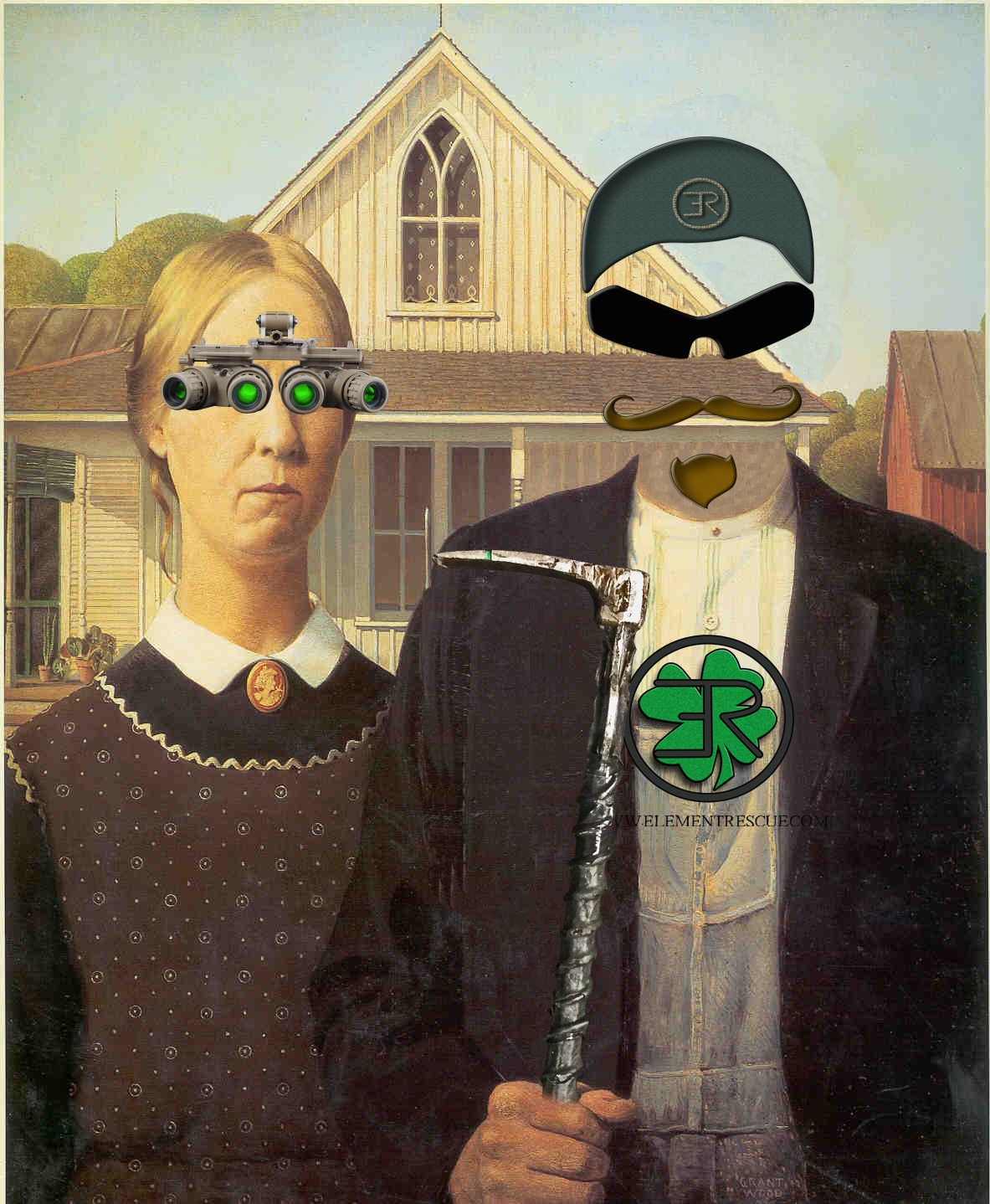
HRO methodology has been permeating into a broad spectrum of high risk / high threat organizations over the past decade. From nuclear power-plants, intensive care units, wild land firefighting and most recently DoD health care systems. There is plenty of information out on the web pertaining to HRO’s, but is it valid or just another company claiming to be “experts” in hopes of getting a high paying contract from your organization? We will speak with one of the originators and internationally respected practitioners of HRO, Dr. Daved van Stralen.
Read More
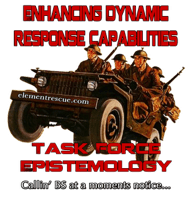
Outlier Considerations to Improve Morbidity & Mortality During Active Shooter Events- Part 1B
This is the second half of Part 1. In this section we dig a little deeper into a few tragic events known throughout the first responder arena, and examine what really occurred and what lessons there are to be learned. Without digging into the minutiae of the event, critical aspects can be overlooked or dismissed, which could impact our response and training dramatically. Another important “take home point” with these events is the fact that many of them learn from one another. Similar to the evolutionary tactics of the Chechnyans, there is a learning cycle, and small adaptive changes that are implemented within the next attack. Very rarely are these attacks “revolutionary” but rather evolutionary.
Read More
Outlier Considerations to Improve Morbidity & Mortality During Active Shooter Events- Part 1A
This is a multi-part series focusing on often overlooked first responder skill sets that have a direct correlation to decreasing mortality during dynamic events. With events like Virginia Tech, Sandy Hook, and Boston, professional communities come forward with new tactics, guidelines, and acronyms. Many of them useful to a degree, but unfortunately many are created in their individual paradigms and only relevant to the latest atrocity.
Read More
Evolve or Die
We live in an ever-changing world and it is certainly becoming more complex. On the home front, the threats we face on the street range from the scumbag looking to take your wallet or the next active shooter, to the terror cell preparing to make the news. As emergency responders, we must evolve.
Read More
Training methodology for high pressure environments goes through great transformation every 5-10 years. Unfortunately, traditional learning models have been applied. These models are not developed for the individual working in an austere, chaotic, time-constrained, and often dangerous environment.
Read More